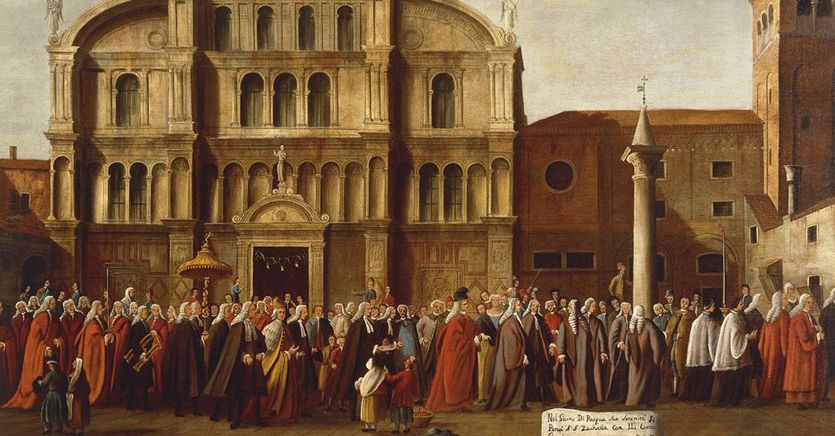One day, in Paris, Napoleon walks by a synagogue and is struck by the great participation with which believers pray. They explain to him that the 9 of Av, a day of mourning and fasting for the Jewish people, commemorates the destruction of Jerusalem and the Second Temple at the hands of Emperor Titus. “A people who have mourned their Temple for 1,700 years deserves to be rebuilt”, declared the ruler of the world at the time. For centuries the Jews, full of faith and rituals, have had their home, the “house of the assembly” in the abode of the Torah. The maps of the world are punctuated by Stars of David which indicate the synagogues: for the Italian ones there is a catalog written by Adam Smulevich, journalist in the editorial office of the Union of Italian Jewish Communities.
The turning point after 1848
The oldest synagogue in Western Europe is located in Italy, in Ostia Antica: it was built in the 1st century BC and renovated in the 4th century AD. The one in Bova Marina, in Calabria, belongs to the same period. The circumnavigation, through more than 40 cities, is geographical and historical: the temples tell of the presence of Jews in Italy, with their values and traditions, and the artists involved. More and more numerous after 1848, when the Albertine Statute was promulgated which granted Jews (and Waldensians) dignity of worship and citizenship.
It starts from Trieste, with its streets crowded with people and cultures and one of the largest synagogues in Europe. One of the happiest intuitions of Emperor Joseph II was to free his Jewish citizens from restrictions that persisted despite the benefits of the free port declared by the Habsburgs in 1719. We then arrive in Venice, where the Serenissima decided to isolate the Jews in the 1516 in that ghetto that would later conquer the vocabularies and the world. Today, five synagogues remain in the city (there were nine): the Scola Grande Tedesca, the Scola Canton, the Scola Italiana, the Levantine and the Spanish to underline the symbiosis between the city and the “people of the Book”. Before leaving the Lagoon, it is better to arrive at the Lido, where the cemetery, the Bet ha Chayyim, that is the “house of life”, opened since 1386, has spaces of real suggestion. Another city in the North-East where the Jewish presence is palpable is Merano: Franz Kafka wrote his Letters to Milena, Stefan Zweig felt that few places were so charming and inspiring.
The multiculturalism of Milan
Going west, Turin, Casale, Vercelli, Alessandria, Mondovì, Asti and Biella tell secular stories: Biella, in particular, in whose synagogue the oldest scroll in use in the whole Diaspora is preserved. The synagogue of Milan is a hymn to multiculturalism: the wood of the seats is of Balkan origin, the workforce that created them is Israeli; the stained glass windows are the work of a New York artist; the floor is in red marble from Trani and pearly marble from Sicily. And in the Temple you can admire an oratory of the Sephardic-oriental rite with the furnishings of a disappeared synagogue in Sermide (Mantua).
The opening of Ferrara and Livorno
Rich history in Ferrara: “We are very happy that the Jews come to live here with their families, because they will always be well seen and treated in all the things we can and every day they will count on coming to our house” . So wrote Ercole I d’Este in 1492 addressing the fleeing Jews. With open arms also Livorno, where the Livornine Laws, issued in 1593 by Grand Duke Ferdinando I de ‘Medici, are a rare case of sixteenth-century enlightenment. For this reason Livorno (and Pisa) could be called a “city without a ghetto”.
